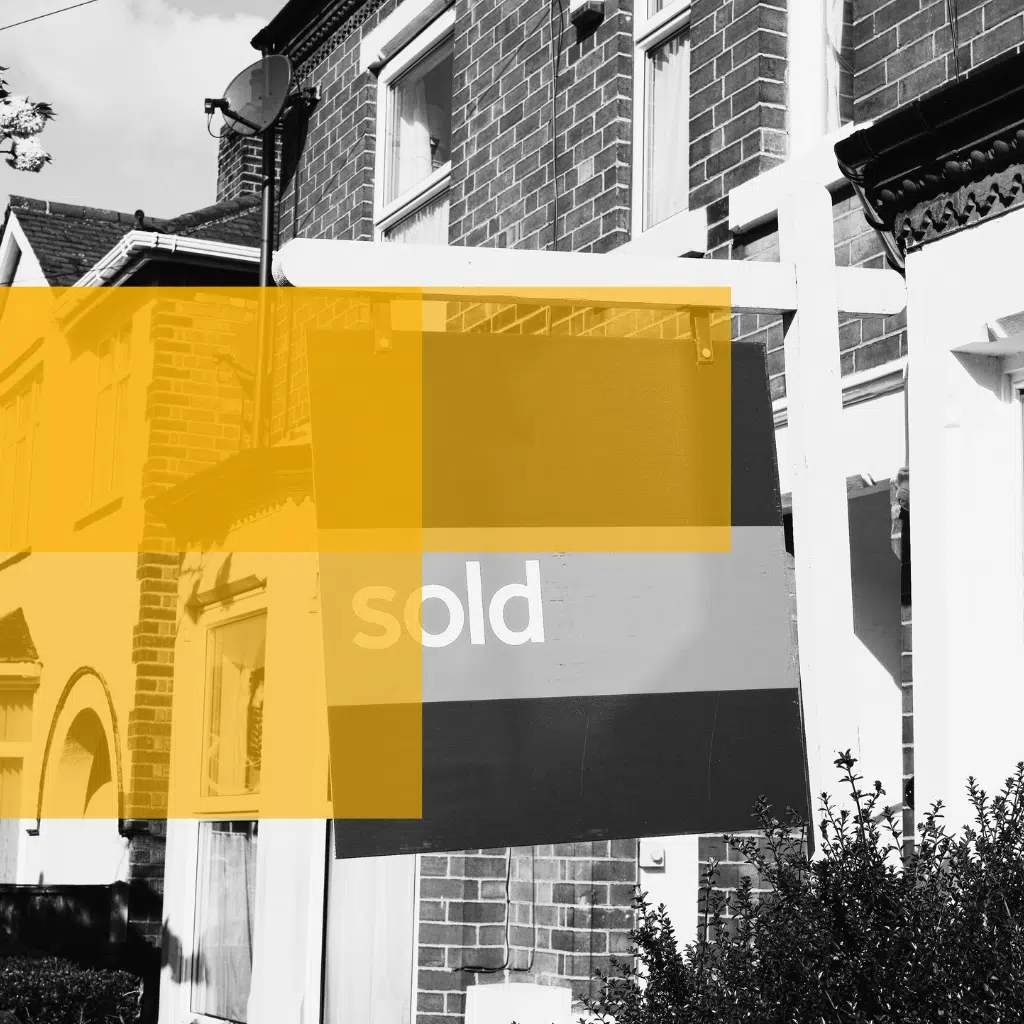10 Tips to Sell Your House Quickly and Effectively
Introduction to House Sale
Selling a house can be a complex and time-consuming process, but with the right approach, it can be a successful and stress-free experience. When deciding to sell your property, it’s essential to consider various factors, including the current market value, asking price, and the services of estate agents. A well-prepared property can attract potential buyers and increase the chances of a quick sale. In this section, we will guide you through the process of selling your house, from preparation to completion.
Understanding the local market is crucial. Prices can vary significantly depending on location, condition, and timing. Researching recent sales in your area can give you a realistic idea of what buyers are willing to pay. Setting the right asking price is key to attracting interest without undervaluing your property.
Working with estate agents can provide valuable insights and support throughout the selling process. They can help you set a competitive price, market your property effectively, and negotiate with potential buyers. Choosing the right agent, whether a sole agency or multiple agents, can make a significant difference in how quickly and smoothly your house sells.
Getting Started with Your Sale

Before putting your flat on the market, it’s worth taking a proper look at the local property scene. Prices can vary from street to street, and even similar homes can sell for different amounts depending on condition, presentation, and timing. Checking what similar places nearby have recently sold for using sites like Rightmove or Zoopla can give you a rough idea of what buyers are willing to pay.
The right asking price can make a big difference. Too high, and you risk scaring people off. Too low, and you might miss out on what your place is actually worth. If you’re working with an estate agent, they’ll usually give you a suggested range based on recent sales and their knowledge of the area. It’s crucial to decide on the best approach by considering all factors involved.
Finally, how you choose to sell, whether through a single agent, multiple agents, or even an online-only service can affect how quickly your home is seen and how the process plays out. Different options come with different fees, contracts, and levels of support, so it’s worth weighing these up before you commit. Additionally, understanding the costs associated with each method, such as solicitors’ fees for conveyancing and potential improvements, can help you make a more informed decision.
How to Get Your Home Ready for Viewings
First impressions count, and kerb appeal significantly influences potential buyers’ first impressions of a property. Viewings are your chance to show your home in its best light. A few simple changes can help buyers picture themselves living there – which is exactly what you want.
Start with a proper clean from top to bottom. Pay close attention to kitchens and bathrooms, as these are often deal-breakers for buyers. If the walls are marked or dark, a fresh coat of neutral paint can help brighten things up and make rooms feel bigger. Neutral tones also give people a blank canvas to imagine their own furniture and style.
Clear away anything personal, like family photos or bold decorations. The aim is to create a tidy, welcoming space that feels open and easy to move through. If you’ve got a lot of stuff, consider boxing some of it up and storing it elsewhere during the sale.
Small fixes can also make a difference. Replace broken light bulbs to create a brighter environment, oil squeaky doors, and give wooden floors a polish if they’re looking dull. Outside, tidy the front garden, wipe down the windows, and consider repainting the front door if it’s looking tired. Even adding a potted plant by the entrance can lift the whole look of the place.
Some sellers bring in a professional to help stage their home, especially if they’re after a quick sale. But many of the basics – clean, declutter, and create space — are easy enough to do yourself.
Choosing a Good Estate Agent
A good estate agent can make the difference between a smooth sale and weeks of frustration. Taking time to find someone reliable and well-informed is a step worth taking. Local estate agents have the advantage of local knowledge, which can be invaluable in understanding the market dynamics and setting a realistic price.
Start by looking at agents who are active in your area. Pay attention to how many local properties they’ve sold recently, how long those homes stayed on the market, and how their listings look online. Sites like GetAgent and AllAgents can help you compare performance and read honest reviews from previous sellers.
Ask what’s included in their service, and get a clear breakdown of fees including any tie-in periods or sole agency terms. Some agents offer lower upfront costs but add extra charges later, so it’s best to know where you stand from the beginning. Understanding the fee structure is crucial to avoid unexpected charges during the sale process.
Good agents won’t just stick your listing online and wait. They’ll have local knowledge, know how to handle viewings, and help you set a realistic price. They should also be registered with a redress scheme like The Property Ombudsman or The Property Redress Scheme, which means you have somewhere to turn if things go wrong.
Most importantly, choose someone who listens and communicates well. You’ll be working together closely, so it helps if you trust their judgement and feel they’re acting in your best interest.
How to Advertise Your Property Effectively

Most buyers start their search online, so being listed on the major property portals like Rightmove, Zoopla and OnTheMarket is a must. These platforms let buyers filter by location, budget, and features, so make sure your listing includes sharp, well-lit photos, a clear floorplan, and a description that highlights your home’s best features. Estate agents will usually take care of this, but it’s worth checking how your property is being presented.
Social media is another tool worth using. Many estate agents now promote listings on Facebook and Instagram, which can attract casual browsers and boost interest locally. Posts that include striking images, short video clips, or a virtual tour tend to perform best and are more likely to be shared.
Viewings still matter too. Virtual viewings and 3D walkthroughs can help attract buyers from further afield or allow people to get a feel for the place before visiting in person. If there’s strong interest, some sellers arrange open house events to generate a buzz and encourage multiple offers. In certain cases – particularly if you’re after a fast sale an auction might be another route worth exploring.
Whether online or in person, the goal is the same: to make your property as visible, appealing, and accessible as possible to potential buyers.
What to Know About the Selling Process
Once you’ve accepted an offer, things move into the legal phase and while this part can feel a bit drawn out, knowing what to expect helps keep it on track. Understanding the final selling price is crucial at this stage, as it impacts estate agents’ fees and any non-refundable reservation fees, which are calculated as a percentage of this price.
The process usually starts with both sides instructing a solicitor or licensed conveyancer. They’ll handle the legal work, including drawing up contracts, checking title deeds, and liaising with the buyer’s solicitor. If you’re buying another property at the same time, your solicitor can often manage both transactions together.
You’ll need to provide documents such as ID, the title plan, and any certificates for building work, as well as fill in a few standard forms. Meanwhile, your buyer might arrange a survey or valuation, which can affect how things progress. Opting for a cash sale can expedite this process, minimizing complications and providing quicker access to funds.
It’s common for sellers to underestimate how long this stage can take. According to Zoopla, the average time between accepting an offer and completion is now around 12 to 16 weeks – sometimes longer if there’s a chain.
Keeping in touch with your solicitor and estate agent, chasing things where needed, and having paperwork ready can help avoid delays. There are also costs to factor in here, including solicitor fees, potential removal costs, and any early repayment charges if you’re paying off a mortgage.
Simple Ways to Make Your Home More Appealing

Start by tackling any obvious issues. Loose handles, dripping taps, cracked tiles, or doors that don’t shut properly can all give the impression that the property hasn’t been looked after. These are usually easy fixes but can sway how buyers feel about making an offer.
Fresh paint can do wonders especially in light, neutral colours that help rooms feel brighter and bigger. Swapping out old light fittings, updating cupboard handles, or putting in new bathroom taps can also help the space feel more up to date without a full renovation.
Lighting and decor play a big part too. Open the curtains, switch on lamps, and consider adding cushions or throws to create a warm, inviting atmosphere. Plants or fresh flowers can bring life to a room and give a feeling of care.
Some sellers use a professional home stager, but many of the same effects can be achieved with a bit of thought. The goal is to make the place feel clean, calm and ready to move into which gives potential buyers fewer reasons to hesitate.
Setting a Realistic Asking Price
Getting the asking price right is one of the most effective ways to attract interest early on. If it’s too high, buyers may skip over your listing. Too low, and you could end up with offers that don’t reflect your home’s real worth. Understanding the selling price is crucial, as it can influence the fees charged by estate agents, which are typically a percentage of the final selling price.
Start by looking at what similar properties nearby have sold for – not just what they were listed at. Websites like Rightmove and HM Land Registry offer recent sale prices, which give you a more accurate picture than listings alone.
A good estate agent will also provide a valuation, usually based on their experience with local sales and buyer demand in the area. Online tools like Zoopla’s house price estimate can be helpful too, but they should be seen as a starting point rather than a final figure.
Don’t forget to factor in condition, layout, and location. A freshly renovated flat in a well-connected area might fetch more than a similar-sized place in need of work, even if both have the same number of rooms.
Being realistic and willing to adjust if you’re not getting interest can help avoid long delays. The longer a home sits on the market, the more likely buyers are to assume something’s wrong or try a low offer.
Negotiating Offers
When a potential buyer makes an offer on your property, it’s essential to negotiate the terms of the sale to achieve the best possible price. As a seller, you should be prepared to negotiate the purchase price, and it’s crucial to have a clear understanding of the market value of your property. Estate agents can provide valuable advice and guidance during the negotiation process, helping you to secure the best possible deal.
Understanding the market value of your property is key. Researching recent sales and working with your estate agent can give you a realistic idea of what to expect. Be prepared to negotiate, but also know your bottom line. It’s important to consider the pros and cons of sole agency versus multiple agency agreements and to understand the fees associated with each option.
Effective negotiation involves more than just price. Terms such as the completion date, any included fixtures and fittings, and contingencies can all be part of the discussion. A good estate agent will help you navigate these negotiations, ensuring that you achieve a fair and favorable outcome.
Understanding the Conveyancing Process
The conveyancing process is a critical stage of the house sale, involving the transfer of ownership from the seller to the buyer. It’s essential to understand the conveyancing process, including the exchange of contracts, completion, and the release of funds. As a seller, you should appoint a solicitor or licensed conveyancer to handle the legal work, ensuring that the process is smooth and efficient.
The conveyancing process typically involves several key steps. First, your solicitor will verify the buyer’s identity and prepare the contract. They will also conduct searches to ensure that the property is free from any encumbrances. Once all checks are complete, you will exchange contracts with the buyer, making the sale legally binding.
Completion is the final step, where the remaining funds are transferred, and ownership is officially handed over. Your solicitor will handle the release of funds and ensure that all legal requirements are met. Understanding this process and having professional advice can help avoid delays and ensure a smooth transaction.
What Happens When You Exchange Contracts

This step usually comes after all the legal checks are done, the buyer’s mortgage is in place, and both sides are happy to move forward. Your solicitor or conveyancer will handle the details, including confirming dates and checking that any conditions in the agreement have been met. They will also ensure that all the questions you have are addressed, providing you with the necessary information to proceed confidently.
Before you get to exchange, it’s worth checking that the buyer has their finances sorted, and that any survey results or agreed repairs have been dealt with. If you’re also buying another property, your solicitor will aim to line everything up so both exchanges happen together.
You’ll usually pay a deposit at this stage (typically 5% to 10% of the purchase price), and the completion date will be set, often one to two weeks later. Once contracts are exchanged, pulling out can lead to financial penalties, so it’s best to double-check that everything’s ready before giving the go-ahead.
Should You Work with Just One Estate Agent?
When selling your home, one decision you’ll need to make early on is whether to work with a single estate agent or list the property with several. Both approaches have pros and cons, but for many sellers, sticking with one agent can be the simpler and more effective option.
Choosing a sole agent means you’ll have one clear point of contact managing everything from the listing and viewings to negotiations and follow-up. This can make communication easier and give the agent more incentive to work hard on your behalf, especially if they know they’re not competing with others for the sale. Understanding the advantages of sole agency agreements, such as streamlined communication and dedicated service, can help you make an informed decision.
If you go down this route, it’s worth picking someone with strong local knowledge, a solid track record, and good reviews. Ask how they plan to market your home, what support they’ll offer during the process, and how long their contract will last.
Sole agency agreements often come with slightly lower fees compared to multi-agency deals. However, you’ll usually need to commit to giving them a fair window to sell – commonly 6 to 12 weeks. That said, many homes sell faster when marketed well by one focused, proactive agent.
Finalizing the Sale
The final stage of the house sale involves completing the sale and transferring ownership to the buyer. It’s essential to ensure that all paperwork is in order, and the buyer has paid the purchase price in full. As a seller, you should also ensure that you have fulfilled all your obligations, including providing access to the property for viewings and ensuring that the property is in the agreed-upon condition.
On the day of completion, the buyer will collect the keys to the property, and the sale will be finalized. It’s a good idea to have a deep clean of the property before handing over the keys to ensure that it is presented in the best possible condition. This final touch can leave a positive impression and ensure a smooth transition for the new owner.
By following these steps and staying organized, you can navigate the house-selling process with confidence and achieve a successful sale.
Final Thoughts

Every home and every seller is different, but the basics hold true: present your property well, price it sensibly, and make sure the people helping you are up to the job. Buyers are out there it’s just about making your home the one they want to come and see.









Comments (0)